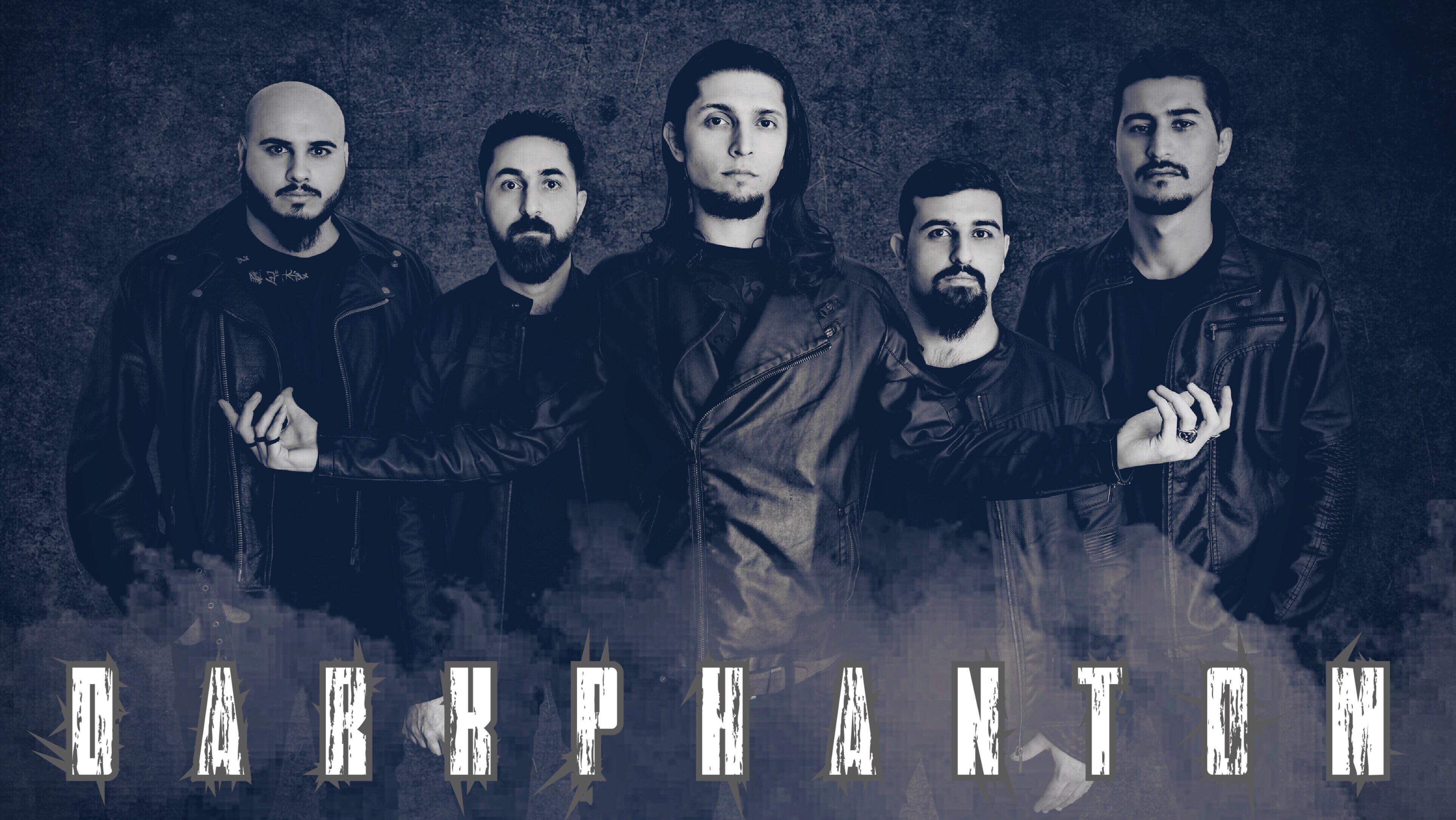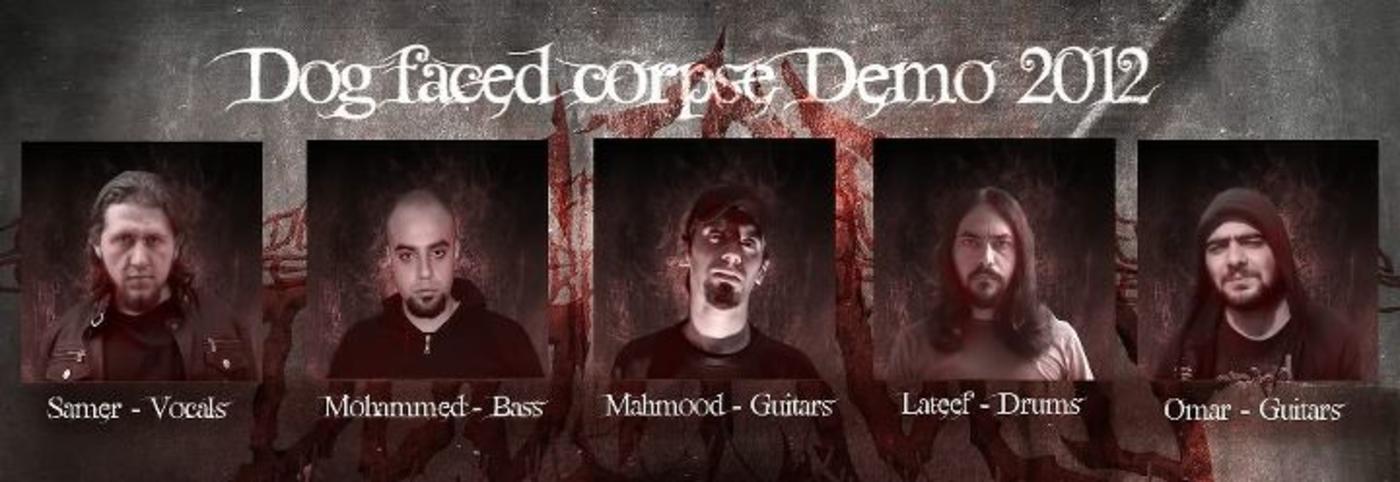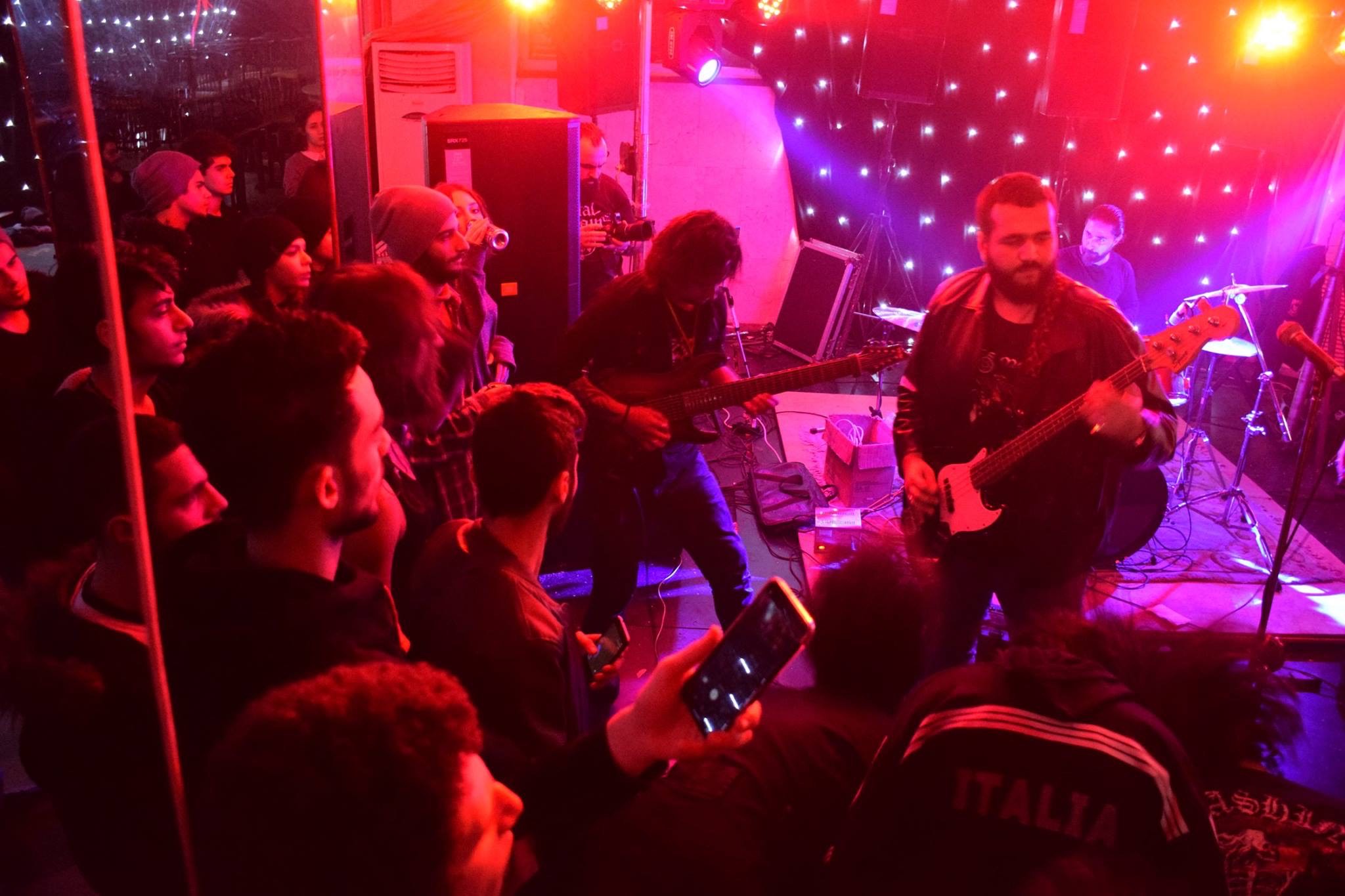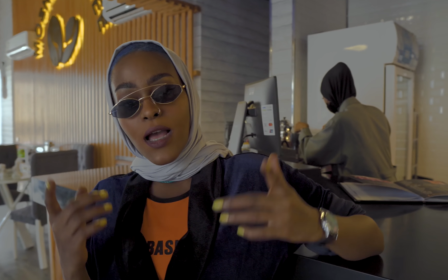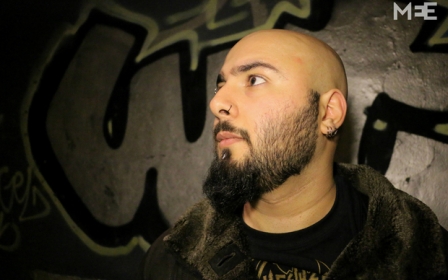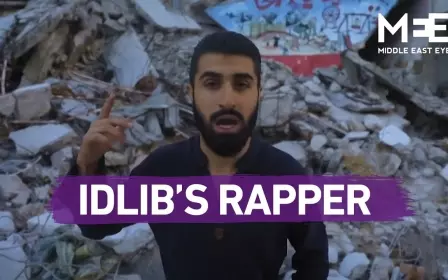Extreme metal in Iraq: Why bands are raging against the machine
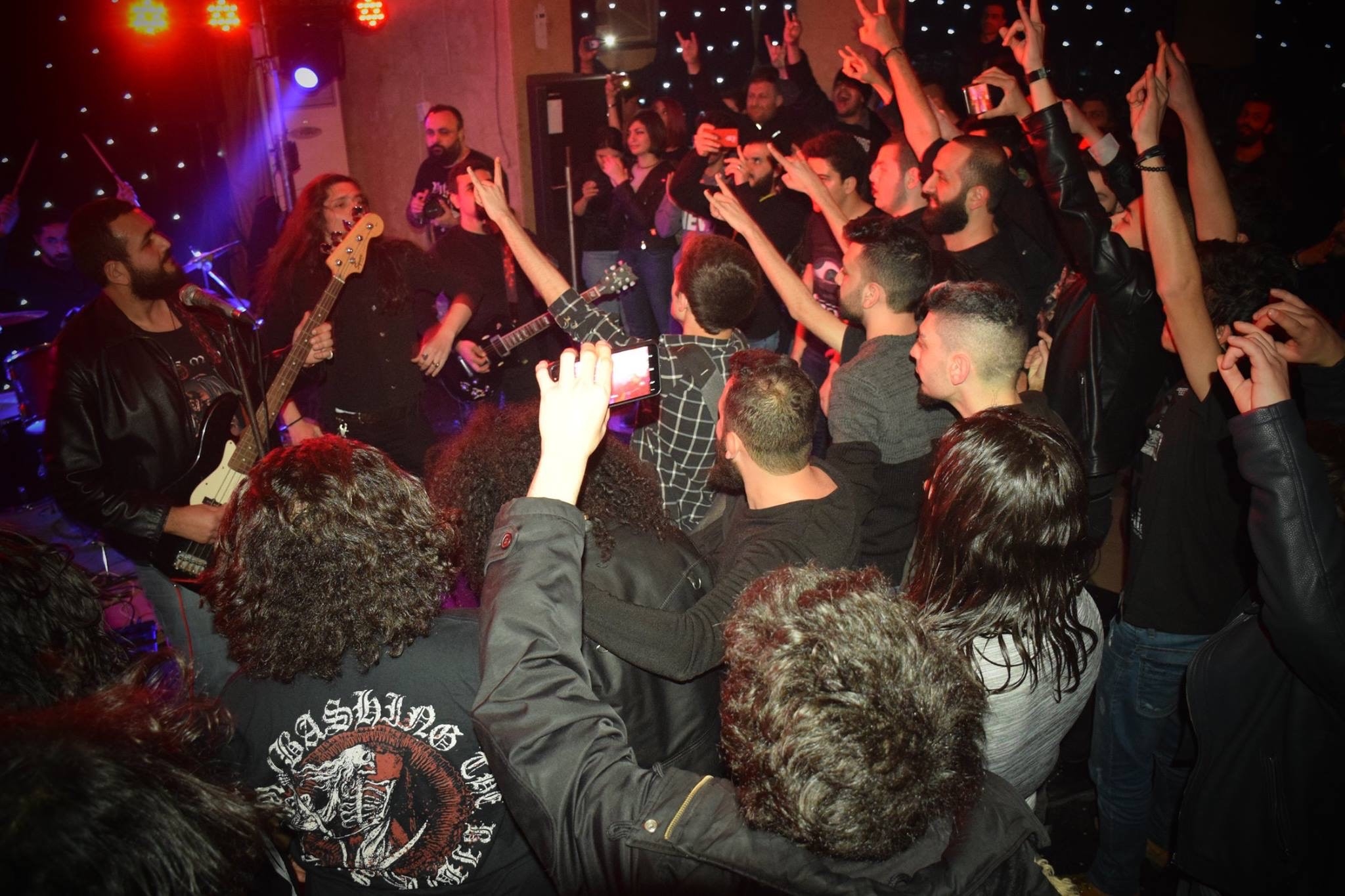
For most of the world, death metal is regarded as a bit much – not least in a conservative and religious society like Iraq.
Like other forms of extreme metal, it is characterised by its cacophonic combination of growled vocals, warped time signatures, rapid-fire tremolo picking and lyrics that deal with the profane, visceral and often downright obscene.
And yet for some Iraqis, the genre’s violence and abrasiveness is the perfect outlet for their generation, a howl against the stifling social restrictions and rampant injustices that have afflicted the country during recent decades.
In March, State of War, the latest video by Dark Phantom - a death-thrash metal band from Kirkuk - showed images of the months-long protest movement, including young men throwing Molotov cocktails while tear gas flooded the streets.
New MEE newsletter: Jerusalem Dispatch
Sign up to get the latest insights and analysis on Israel-Palestine, alongside Turkey Unpacked and other MEE newsletters
Over this, singer/bassist Mir Shamal Hama-Faraj (generally just known as "Mir") growls anti-establishment lyrics:
Brothers slaying brothers
In this state of war
Father blaming fathers
In this state of war
The song first appeared on Nation of Dogs, Dark Phantom's only full-length album, which was released in May 2016. "Video shooting is very hard for us,” says guitarist Murad Yaymz, speaking the day after the video was released, “because we don’t have a good camera, or directors. We did everything by ourselves.
"When we called the photographers in Baghdad for footage, no-one [on Facebook] could send or answer, because they were scared. But we did our best - we looked for that footage for more than three months, because when we used footage from YouTube or social media, there were copyright issues. When we put it through the software, the quality became low. But we worked on it from December until yesterday."
Yaymz says the band had long supported the same criticisms of the Iraqi administration as the protest movement.
"When you see the album art, you will see we are anti-corruption, anti-bad governance, and we are anti-religious corruption,” he explains. “We are not attacking religions [but the use of religion], they let people kill each other."
Dark Phantom originally formed in 2007, drawing inspiration from CDs provided by US forces stationed in the city. Thrash metal band Metallica were perhaps the most important influence, along with the likes of Slayer and Lamb of God.
"[Metallica guitarist] James Hetfield was my big inspiration,” says Yaymz. “My big dream was to see them in a show and I waited 10 years for this. I finally saw them live in Turkey in 2014. That was one of my big dreams.”
Another important influence was Acrassicauda, often referred to as Iraq's first metal band, who formed in 2000 and were documented in the film Heavy Metal in Baghdad.
Metal amid mayhem
Iraq has been gripped by an array of crises since the US-led invasion of 2003, moving from a state of effective civil war and sectarian conflict to the rise of the Islamic State group.
Suicide bombings, kidnappings, assassinations and militarisation of the streets have all been part of Iraq's make-up, along with the rise of religious groups and militias determined to enforce ultra-conservative social mores.
Upshot: developing a thriving heavy metal scene was never going to be easy. Kirkuk, in particular, suffers from severe tensions between Turkmens, Arabs and Kurds in this often-contested city.
Dark Phantom's line-up reflects that tapestry: lead singer Mir (originally from Sulaymaniyah) is Kurdish, drummer Mahmood Qasim is Arab, while Murad, bassist Sermet Jalal and second guitarist Rebeen Hashim are all Turkmens.
"You know there is some heat between each other, but we feel like brothers, we don’t care about that,” Murad says. “In the studio we are talking a different language every minute.”
He explains that their different mother tongues was a factor in deciding to perform in English (they also want to broaden their international appeal).
"We created a small home studio in our homes. We recorded everything by ourselves, recording, mixing, mastering - even the videos we shot by ourselves, supported by some friends who brought cameras and lighting kits. And that’s fine you know, our videos aren’t very professional but we’re doing our best for making music here."
Censorship in Iraq
To the surprise of virtually no-one, Dark Phantom has earned the anger of Iraq's religious leaders, who have branded the band "Satanists", a common label attached to metal musicians and fans by conservatives worldwide.
Although Yaymz says that the band hold no ill will towards any religion, some of the band's lyrics are less than favourable, such as New Gospel:
Religion is a lie
Religion is hate
Life for deen [Arabic for religion]
Is a life gone waste!
Yet despite the risks, Yaymz says that a small fanbase has developed in Kirkuk. "We meet in cafes and hang out together. But still the scene is very small. Like 30 people or 25. Also there is no place in Kirkuk to play live music, you know, no-one can give you a space to play this type of music.
"Everyone in the metal scene has been attacked - they put us in different categories like Satan-worship or, like, if they see someone wearing a black shirt with skulls or long hair or a goatee, we look like bad guys or bad boys. They don’t understand our music or our lifestyle."
While Dark Phantom's lyrics largely focus on what might be called "social issues", the same can't be said for Dog Faced Corpse, referred to by the Encyclopaedia Metallum as "Iraq's first death metal band".
Short-lived and no longer together, Dog Faced Corpse - who specialised in Technical Death Metal, a more musically complex form - were much more happy to indulge in outright gore.
Formed in Baghdad in 2008, the band's only solo release was a 2012 demo that contained such gentle tracks as Channel of Decomposed Bodies, Broiled and The Drill.
In the years they were together, Dog Faced Corpse played a number of underground gigs around Baghdad, discreetly advertising so as to avoid a conservative backlash.
Omar Khan Ahmed Mohammed, former bassist for the band, recalls: “We did it during a time when you would find people beheaded in the streets and other really gruesome stuff.
"But it was an exit from the cruel facts of the life we had in those times. Also, the government back then was completely unaware of anything artwise. Good thing we are all alive now."
Much like Dark Phantom, Mohammed and Dog Faced Corpse had to work hard to overcome adversity, given Iraq’s lack of studios and rehearsal spaces.
"I got into playing guitar at first by having some programs and some plugins for the metal sounds,” he says. “Then I remember asking some dudes online how to get a good destruction (distortion) sound.
"I got laughed at hard. And that was the inspiration of wanting to be the best guitarist Iraq could offer. And for two years kept practising mostly technical stuff everyday for 18 or so hours."
The few gigs Dog Faced Corpse managed to put on drew fans decked out in black T-shirts, often adorned with famous death metal and grindcore bands such as Death or Cannibal Corpse.
The violent imagery of the music (sample lyric: "I’ll see you die at my feet/Eternally I smash your face/Facial bones collapse as I crack your skull in half") heavily mirrored the backdrop of seemingly perpetual violence.
Mohammed has been out of the metal business for a few years, occasionally helping other projects such as Sodomophilia, a death metal outfit largely driven by Saad Algailani.
But he says Iraq, particularly Baghdad, had opened up in recent years, leading to a flowering of artistic expression.
The defeat of Islamic State group has seen the country come off a war footing for the first time in several decades, even as anti-government protests mean that stability is still a long way off.
The transformation of social attitudes and the loosening of conservative strictures has been a factor in the protest movement: many young Iraqis esepcially want to be able to express themselves.
Mohammed says: "Iraq has opened its arms wide to embrace art to the fullest. Now we have anime gatherings, orchestral concerts, night clubs, tons of events and gatherings in every way you could imagine. With booths for merch and stuff like that.”
And while the scene is still small, he has been contacted by younger musicians eager to try metal. "It is amazing what Iraq has become in those few years, especially after defeating IS.”
The Phantom spreads
Dark Phantom continue to be, by some margin, Iraq’s most high-profile metal band, and the only one with a serious following abroad.
In February 2019, they travelled to Latakia on the Syrian coastline to gig alongside Syrian metal bands.
"We wanted to make a show in Syria because Syria and Iraq both faced the ISIS terror war and we got a victory over them, and we decided to play with a Syrian metal band to make a show," said Yaymz.
The group funded the trip thanks to social crowdfunding. In the end they played to around 100 people in the city, one of the few to have largely escaped the country's brutal nine-year war.
"The organiser made the tickets very cheap, but the economic situation in Syria is very bad. The ticket was like $2 but even that was expensive for them," explained Yaymz.
"But there were many people who came from Lebanon and Damascus and different cities in Syria. The show was small, but very good. The equipment was very old, but we did our best."
Another two tours of Iraq's Kurdish region, which has been more stable than central and southern Iraq, were funded by the French consulate in tandem with a number of French bands.
Fleeing Iraq
He said he hoped that in future his band would be able to tour more both nationally and internationally - but is less optimistic about the current state of metal in Iraq.
"There was death metal and thrash metal in 2011, but you know about the situation, most of the members left the country or changed their styles and play rock and soft music in the cafes," he says. Foremost among these are Acrassicauda, who now live in New Jersey after fleeing Iraq amid death threats and violence.
"There are many militia in Baghdad, they are scared for themselves. The scene became small when most of them travelled and left the country."
'Iraq has opened its arms wide to embrace art to the fullest. Now we have anime gatherings, orchestral concerts, night clubs, tons of events and gatherings in every way you could imagine'
- Omar Khan Ahmed Mohammed, musician
Virtually every country on earth has at least a handful of metal bands who set up in a garage, downtuned their guitars and learned to growl into a microphone, before sharing their music quickly and easily through hosting sites such as Bandcamp.
"I see metal music as a very big community - we don’t care about religion or nationalities or colour, we are just music fans, who like some bands," says Yaymz. "Metal is just our lifestyle you know."
And despite his pessimism, Mohammed agrees that metal is "family".
"The ability of some songs to change your sorrows into power. To motivate you and encourage you when everything seems lost. And for musicians mostly. It's the small family you build based on this beautiful creation you make.
"So why is it important? Well... it's metal "
Middle East Eye delivers independent and unrivalled coverage and analysis of the Middle East, North Africa and beyond. To learn more about republishing this content and the associated fees, please fill out this form. More about MEE can be found here.


